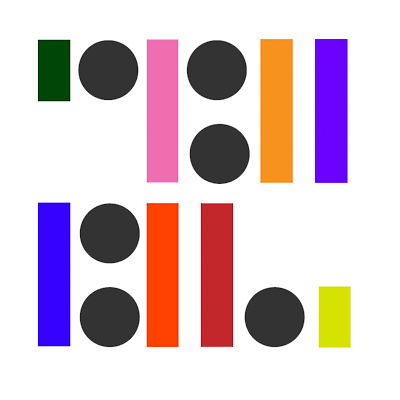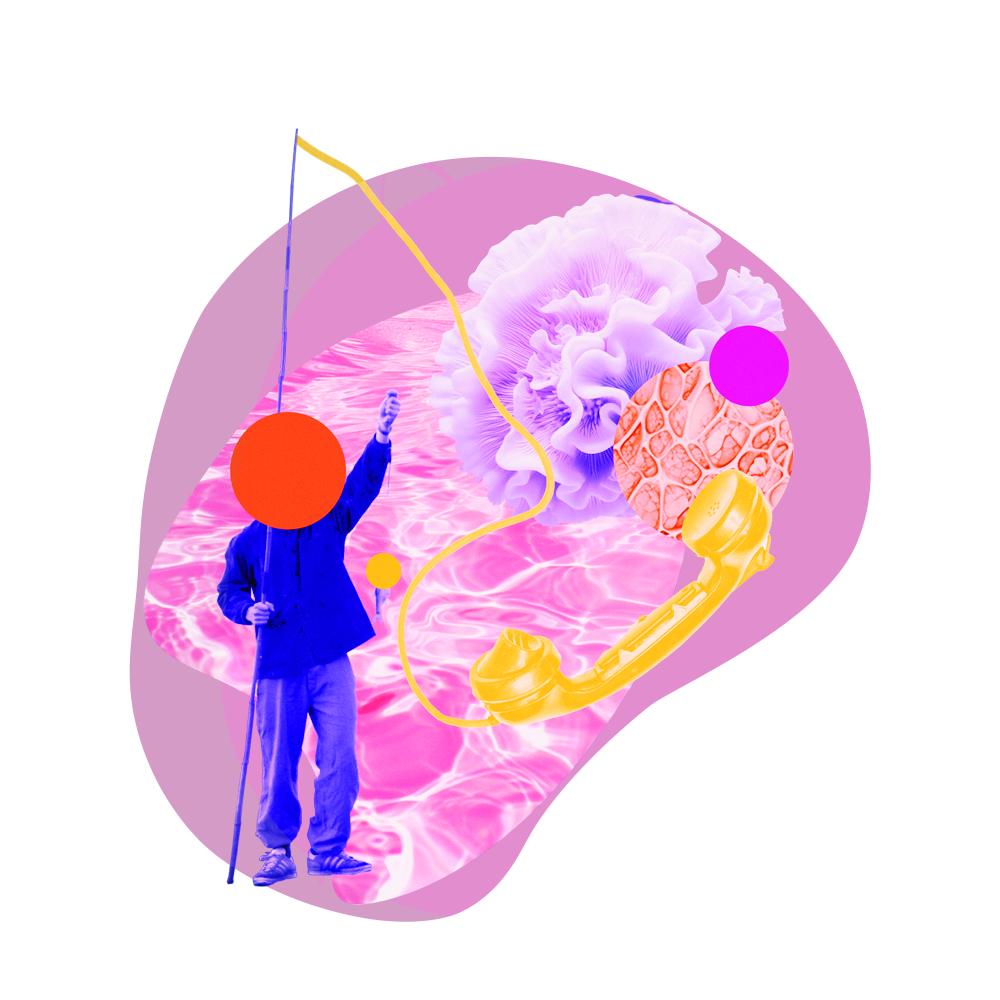across the fungiverse: fungal ecologies, materials and soundscapes
How can working with fungi—as both a material and a metaphor—help artists slow down, fully engage their senses, and explore the deep connections between life, death, and transformation?
• 11. February -11. March 2025
• Online!
• Five-weeks, Tuesdays, 6-8PM CET
• Small class of participants
Artist / Student (Full Time)
€225*
Freelancer
€245*
Professional
€275*
Generous Supporter Ticket
€295*
course
description
In this course, we will explore the mysterious and magical world of fungi, combining mycology, history, material science, and sensory experience. We will learn about the origins of fungal biomaterials, from ancient technologies that our planet has been refining and that land-based communities have been using for centuries to modern applications in material science and art.
Throughout the series, we use our bodies as sensory tools to get entangled with the fungal underground. We will start each session by grounding through meditations to connect with the 'mycelial state of mind' and explore the poetic and philosophical aspects of fungi through excerpts from texts like Let’s Become Fungal, Entangled Life, The Mushroom People, and Myth & Mycelium. We’ll discuss themes such as the ephemeral nature of fungi, their roles in ecosystems, and their symbolic associations with death and rebirth.
Before we get into the hands-on work, we’ll co-create a framework for engaging with fungi in an ethical, respectful way. We’ll set some ground rules and intentions for our practice, making sure we’re approaching our more-than-human collaborators with the care they deserve.
The course will cover the language and knowledge specific to fungi, understanding the specialized terms and perspectives within the mycological community. We will cover foraging and material gathering, where participants will learn about various fungi suitable for creating mushroom paper, pigments, and inks. We will also introduce the basic methods of creating mycelium-based materials using GIY kits and guide participants in creating simple forms such as candle holders or plant pots using accessible molds from recycled containers and making sculptural mixes for free-form fabrication. Lastly, we will learn to translate biological frequencies emitted by fungi into soundscapes using tools like Ableton or simple synth software.
Note: This course will make use of grow-it-yourself mycomaterial kits, biodata sonification kits, free audio mixing software, and basic sterile handling tools and kitchen equipment. Participants without kits are welcome to follow along with the instructor and then purchase their kits later to try the techniques out on their own. Class files, video tutorials, and texts will be provided for those who do not have access to the materials by the start of the class so that they may reference the learning material in their own time.
In this course you will be introduced to
Theory
Mycological jargon.
Historical and modern uses of fungi in biofabrication.
Ecologies and relationships of fungi with other organisms.
Fungal poetics through literature and philosophy.
Mycelial minds meditations.
Speculative means of engaging with interspecies modes of communication between humans and fungi.
Practicum
Basic foraging skills to identify and gather local fungi, processing and storage for material use..
Create mycopaper from foraged mushrooms.
Make inks from mushrooms for printmaking and watercolors..
Introduction to mycelium-based objects like candle holders or plant pots using molds or sculpting techniques.
Use software to turn fungal frequencies into soundscapes with biodata sonification device.
Collaborative framework for ethical engagement with fungal collaborators.
course
outline
Week 1: Fungal Foundations
Introductions.
Grounding: interspecies meditation and fungal poetics.
Introduction to mycology and fungal language: terms, concepts, and community perspectives.
Historical context: fungi as ancient technologies and their traditional uses.
Modern innovation and applications to inspire our explorations in the following weeks.
Collective crafting of an ethical design framework.
Week 2: Foraging and Crafting
Grounding: interspecies meditation and fungal poetics.
Introduction to foraging: ethics, safety, and identification.
Creating mushroom paper and inks and colors.
Process videos and tutorials.
Week 3: Working with Bio-Materials
Grounding: interspecies meditation and fungal poetics.
Introduction to mycelium-based materials: properties, uses, and potentials.
Hands-on molding: creating simple forms with DIY kits or home-made molds.
Exploring sculptural mixes and freeform molding techniques.
Online resources and recipe repositories.
Q&A for personal projects.
Week 4: Biomaterials class 2 and Introduction to biodata sonification
Grounding: interspecies meditation and fungal poetics.
Checking in on material processes and questions from last class.
Introduction to biodata sonification: what it is and how it bridges human and non-human communication.
Hands-on tutorial: setting up software and hardware to create soundscapes.
Online resources and documentation repositories.
Week 5: Prototyping the Future Artifact
Grounding: interspecies meditation and fungal poetics.
Biodata sonification part 2: troubleshooting software and hardware. Sharing process and sampling sounds.
Ideations sharing circle: envisioning new ways to engage with fungi in art, design, and science.Integrating our experiences, reflecting on our 'contract,' and setting intentions for continued exploration.
who is this
class for?
This course is introductory level, it will set anyone without prior experience off with a set of tools and resources for deepening their practice in any of the methodologies covered. It’s perfect for budding mycophiles, artists, designers, makers, writers, crafters, scientists, sound artists, and bio-curious folk. It is especially suited for those keen on experimenting with fungi in different materialities.
extra materials needed
Please note: This course will make use of project kits not sold by the school. Participants are welcome to purchase these kits on their own if they wish to follow along with all the exercises.
Grow it yourself kits:
If you purchase the kits before the class, please keep them refrigerated.
USA: https://grow.bio/products/grow-it-yourself-material?srsltid=AfmBOorc6e9JeVRRKZIMdiZHSnOnqzL4zUKiLCs8pDPefBwWMRsQLbOH
Europe and UK: https://www.grown.bio/product-category/grow-it-yourself/
UK:https://www.fatfoxmushrooms.com/product-page/making-with-mycelium
Europe and UK only (very fine material for hand sculpting or modeling): https://www.kineco.bio/shop
Biodata Sonification:
These kits normally come in two options - one for folks who have good soldering skills and want to try building this for class. We will not demonstrate how to solder during class so that's something to keep in mind. The kit also has an assembled option!
Europe and UK (with global shipping): https://www.etsy.com/listing/1001626255/diy-synth-kit-symbiotic-biodata
Same kit as above ebay link: https://www.ebay.com/itm/284823433003
Find them on IG they answer your questions about the kit and shipping: @spad_electronics
Canada and USA / DIY kit option only (with global shipping): https://nanotopia.bigcartel.com/product/nanotopian-midi-bio-sonification-module-kits
Find Tosca Teran on IG to message directly with your questions about the kit or orders: @nanotopia_net or email at nanotopian@gmail.com
If you’re following along using the biodata sonification kit, for use in a laptop, participants will also need a USB-MIDI cable like is one:
https://www.ebay.com/itm/115411463190?_ul=MX
This ebay link is just an example, they can find the same cable on Amazon, Mercado libre, walmart, any audio equipment store locally should carry something similar also or know where to source it locally.
These links are suggestions on where to find materials. If you find alternative places/prices, feel free!
about online classes
Classes are 'live' meaning that you can directly interact with the instructor as well as with the other participants from around the world. Classes will also be recorded for playback in case you are unable to attend for any reason. For specific questions, please email us and we'll get back to you as soon as we can.
about
scholarships
We are offering a limited number of reduced fee scholarships for this online class for those facing financial hardships. These allow participants to pay a reduced fee and are reserved for women, BIPOC, and LGBTQ+ who otherwise would be unable to attend. To be considered for one of these scholarships, please use this form.
To apply for a reduced fee scholarship, you must fill in the form no later than one week before the course begins. We will not accept any class sign-ups or scholarship applications after this date, as our regular sign-ups will determine the amount of scholarships we can accommodate. We will notify you shortly thereafter if your application has been approved.
We are a small organisation with no outside funding and like many, we are also in survival mode. We depend on tuition fees for reimbursing class instructers, space fees, and operational costs. We ask you to consider this when applying for a reduced fee scholarship. <3
meet the
instructor
Catherine Euale
Multimedia Bio-artist
Catherine Euale is a Venezuelan- Canadian multimedia bio-artist, citizen scientist, community enthusiast and storyteller with a background in film and fashion. Her work centers around deepening our relationships with the more than human worlds. In her practice, she challenges the need to use materials and methods that are non-compatible with living systems.
Catherine completed a biomaterials and digital fabrication thesis at Fabricademy Barcelona at the Institute of Advanced Architecture Catalunya in 2019. She completed a certificate with the Buckminster Fuller Futures Design School in 2020. Cathetine has been a mentor for the Biodesign Challenge, has taught biomaterial classes at InterAccess, Textile Center in Iceland and the Contemporary Textile Studio in Toronto. She was a resident with the Fungi Academy and a masterclass teacher on mycelium based materials on their Ecology online course.
Her work has been exhibited in Milan Design week, the MIT BioSummit, Future Fabrics Expo in London and Climate and Art festival Dear2050 in Switzerland. She has won grants from the EU Worth Partnership Project for international collaboration in design, mentorships from NASA Minds, Letting and Vogue business. She is a co-founder of S-Biotica biology art space in Barcelona with Jessica Días and Lara Campos. She is currently working on an online learning platform for myco-materials with long time collaborator Jessica Días and publishing a detailed guidebook on the subject.

